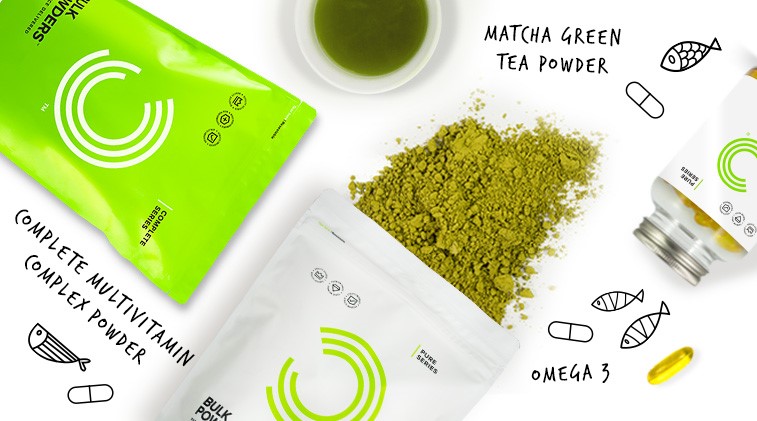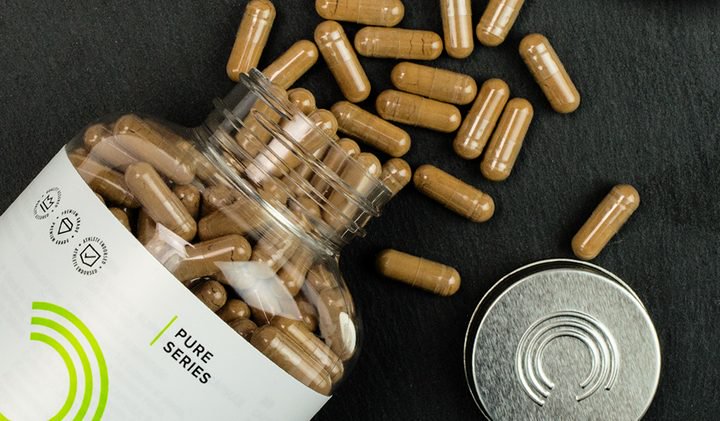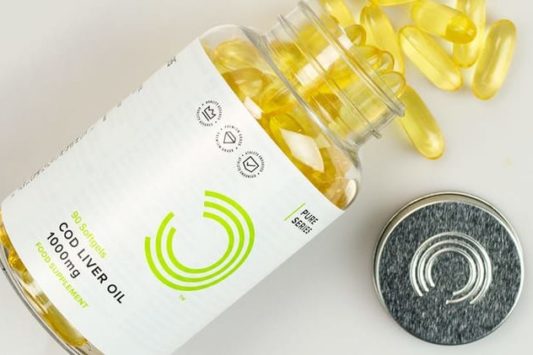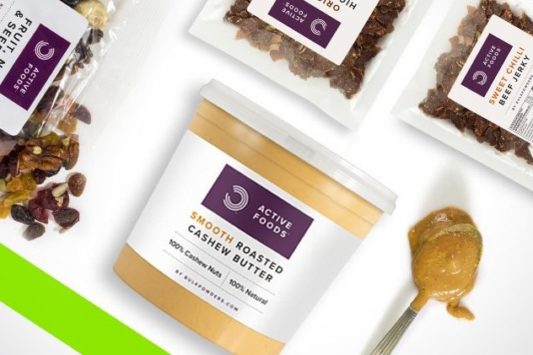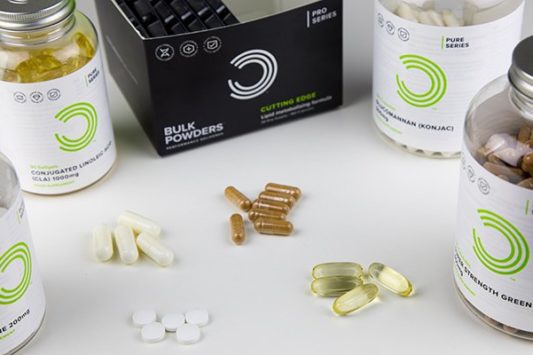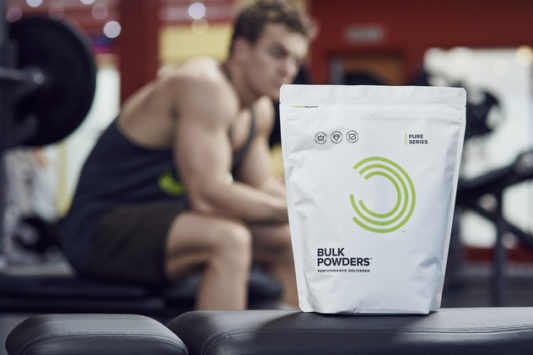Thanks to recent medical advances we’re lucky enough to find ourselves living longer than ever before – nice one science! However, in order to fully enjoy this longer lease of life, it is imperative to keep our bodies and minds in tip-top condition. Leading an active lifestyle is a major part of this, with regular exercise being key to staying healthier for longer. Nutrition is another big player when it comes to healthy ageing; it’s widely appreciated that a diet with plenty of vegetables, oily fish and lean protein is beneficial to health.
There are also a few supplements which may help, the most obvious of which are Omega 3 Fatty Acids. This article will evaluate the efficacy of these along with some others which may not immediately spring to mind.
OMEGA 3 FATTY ACIDS
As an informative article writer, the answer is always the same whenever Omega 3 Fatty Acids crop up – take them, they’re good!
Omega 3 Fatty Acids, especially Eicosapentaenoic acid (EPA) and Docosahexaenoic acid (DHA) benefit the health of the heart, the brain, vision, blood pressure and blood lipid levels. All fairly important things!
Current national nutritional guidelines indicate that we should be aiming to consume at least two portions of fish a week, one of which is an oily fish such as salmon, mackerel, herring etc. This is a good start, but many people would argue that it is not nearly enough. Also, a lot of people don’t manage to achieve anywhere near this much fish in their diets, one portion a month may be closer to the truth for some.
This is where supplementing with Omega 3 Fatty Acids can really help. The health benefits of an Omega 3 supplement are well documented and accepted, but a large amount of people may not realise how much they actually need to consume in order to experience the beneficial effects. Below are some of the EU approved amounts translated into their equivalent amount of various Omega supplements:
- To contribute to the normal function of the heart – 250mg EPA & DHA per day. This equates to:
- Two Cod Liver Oil Softgels 1000mg
- One of our Omega 3 Fish Oil Softgels 1000mg
- One of our Super Strength Omega 3 Softgels 1000mg
- To contribute to normal brain function and the maintenance of normal vision – 250mg DHA per day. This equates to:
- Four Cod Liver Oil Softgels 1000mg
- Three Omega 3 Fish Oil Softgels 1000mg
- Two Super Strength Omega 3 Softgels 1000mg
- To contribute to the maintenance of normal blood triglyceride (lipid) levels – a total of 2g EPA & DHA combined. This equates to:
- Eleven Cod Liver Oil Softgels 1000mg
- Seven Omega 3 Fish Oil Softgels 1000mg
- Four Super Strength Omega 3 Softgels 1000mg
- To contribute to the maintenance of normal blood pressure – a total of 3g EPA & DHA combined. This equates to:
- Sixteen Cod Liver Oil Softgels 1000mg
- Ten Omega 3 Fish Oil Softgels 1000mg
- Six Super Strength Omega 3 Softgels 1000mg
As you can see, getting your Omega 3 Fatty Acid intake from supplements alone can become quite a time consuming habit! We would always recommend supplementing with Omega 3s for general health as well as having a good dietary intake of fish. So, to save yourself taking a small truckload of pills per day; why not go for one of our stronger offerings such as our Super Strength Omega 3 Softgels 1000mg or PROM3GA™?
PHOSPHATIDYLSERINE
Phospha-what now? Phosphatidylserine, or PS as it’s known is a phospholipid naturally found in the blood brain barrier which plays a role in cell signalling. Levels of PS in the brain are believed to decline naturally with age and this is where the interest in supplementation comes in. Traditionally supplemental PS was extracted from the brains of cattle, so you can imagine the mad cow disease scare of several years ago put an end to that. Thankfully both soy and sunflower lecithin are also excellent sources of this phospholipid.
There is currently a large amount of research ongoing relating to whether supplemental PS can slow or prevent cognitive decline, an unfortunate side effect of the ageing process. It is way too early to draw any conclusions on this, but it’s an interesting topic for the future. However, one thing that we have observed is that PS is effective at reducing markers of stress in young, healthy individuals.
One particularly interesting study tested a combination of PS and Phosphatidic Acid (another phospholipid) on 75 chronically stressed but otherwise healthy males. It was found that supplementation effectively reduced the serum cortisol response to stress when compared to placebo. A blunted response of cortisol implies a better overall response to stress; reducing levels and feelings of stress is important for an overall feeling of wellbeing.
The downside of PS is that in powder format it tastes pretty awful, the plus side of our PS is that it’s available in a convenient, flavourless tablet form! So why not give your taste buds and adrenal glands a break and check out our PS Tablets.
TRANS RESVERATROL
Resveratrol is naturally found in red wine and red grapes, it is also probably one of the most researched supplements around currently. Due to its presence in red wine, Resveratrol is the compound which has been credited with granting long life to the Mediterranean population. It’s highly likely that the overall longevity of our French and Italian brethren can actually be attributed to their overall better diet and lifestyle, but Resveratrol does still have a fair bit of efficacy behind it.
Amongst other things, Resveratrol is regarded as a hugely powerful antioxidant and anti-inflammatory compound, with an ability to scavenge pro-oxidative compounds. Thanks to our fairly unhealthy Western diet, we could do with all the help possible when it comes to increasing our intake of antioxidants. Improving the body’s antioxidant defences could help to reduce the peroxidation of organic compounds such as lipids, proteins and DNA.
There are a huge amount of health benefits that Resveratrol ‘could’ hold, unfortunately there are none that we can currently say it ‘does’ hold. Sadly this is going to cut this section a little on the short side, but I would recommend giving Resveratrol a google and seeing for yourself what this compound could do for you.
GREEN TEA EXTRACT
Green Tea is from the leaves of Camellia Sinensis. The same plant provides the leaves that make Oolong Tea, Black Tea and White Tea – whatever your favourite morning cuppa is, chances are that the humble Camellia Sinensis has you covered! Green Tea has been used in traditional Chinese medicine for thousands of years and has recently experienced an explosion of popularity in mainstream nutrition. The main reason for this has been the rise in research showing the potential of Green Tea to increase fat oxidation.
Studies as far back as Dulloo et al in 1999 have reported an increase in overall energy expenditure and the rate at which our bodies metabolise fat for energy after a dose of Green Tea. This has been jumped on (with good reason) by both the Wellness and Sports Nutrition industries as an increased rate of fat oxidation can only be a good thing. From the Wellness point of view, increasing metabolic rate and fat oxidation will (hopefully) result in weight loss. At a time when a large amount of the adult population is classed as overweight and/or obese, any compound which could help with weight loss is well worth considering. Needless to say, reduced weight is good news when it comes to overall health, wellbeing and quality of life.
The good news for Green Tea is that whilst there’s not yet an approved health claim relating to its effect on fat oxidation or weight loss, the vast majority of available research does show a positive effect. For a highly dosed Green Tea supplement, why not check out our Super Strength Green Tea Capsules 450mg.
INULIN
Inulin has been through several surges in popularity recently. Around this time last year it was featured on the BBC program ‘How to Stay Young’. Cue a sudden surge in sales and the country literally selling out of the product! Recently the Channel 4 show – Food Unwrapped has also done a feature on probiotics and prebiotics, cue another round of interest.
Inulin is a soluble, naturally sweet fibre extracted from the root of the chicory plant, a member of the dandelion family. It is very high in fibre, packing in a massive 89g fibre per 100g of product. This contributes to the normal function of the bowels for obvious reasons, anyone who’s ever eaten a packet of prunes will be familiar with the chaos that can follow an overindulgence of this nutrient! A large amount of the adult UK population don’t get near the recommended 30g of fibre per day; if you feel you may be one of these adults, then Inulin can help you towards reaching this goal. Just maybe stick to our recommended serving of 5g to avoid the potential, uh, explosive side effects…
As mentioned above, one of the main areas of interest surrounding Inulin is to do with its function as a prebiotic. Generally speaking people are familiar with probiotics now – healthy bacteria which can allegedly enhance gut health. In the loosest terms possible, prebiotics are food for these helpful little guys. It stands to reason that if you’re spending money on improving your gut health, you’ll need an environment that the good bacteria can survive in. Our Inulin Powder is the best priced in the UK, so why not give your intestinal bacteria a boost?
Take Home Message
Here we’ve covered off a few supplements for general health and wellbeing. This is by no means an exhaustive list as we have an absolute mass of ingredients and supplements available which could aid your health goals.
You may wonder why I’ve left our Complete Multivitamin Complex™ out of this article, if there’s one supplement which is geared towards health and wellbeing then it’s surely got to be this, right? The answer is yes, of course I’d recommend Complete Multi for general health, however multivitamins have been around for so long that there’s really nothing that new left to say about them!
Whilst we might take our health for granted whilst we’re young, it’s never too early to start making good choices when it comes to looking after ourselves. Hopefully this article has given you a few new ideas for your monthly supps order!
References:
Bonnefont-Rousselot, D. (2016). Resveratrol and Cardiovascular Diseases. Nutrients. 8(5), E250.
Dulloo, A.G. et al (1999). Efficacy of a green tea extract rich in catechin polyphenols and caffeine in increasing 24-h energy expenditure and fat oxidation in humans. American Journal of Clinical Nutrition. 70(6), 1040-1045.
Hellhammer, J. et al (2014). A soy-based phosphatidylserine/ phosphatidic acid complex (PAS) normalizes the stress reactivity of hypothalamus-pituitary-adrenal-axis in chronically stressed male subjects: a randomized, placebo-controlled study. Lipids in Health and Disease. 13(121).
